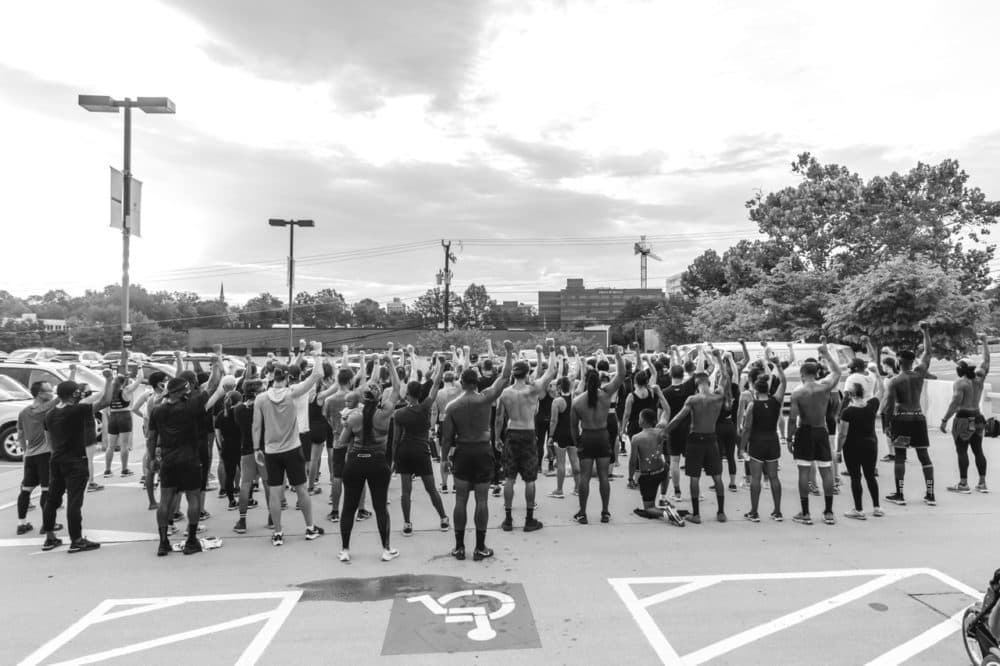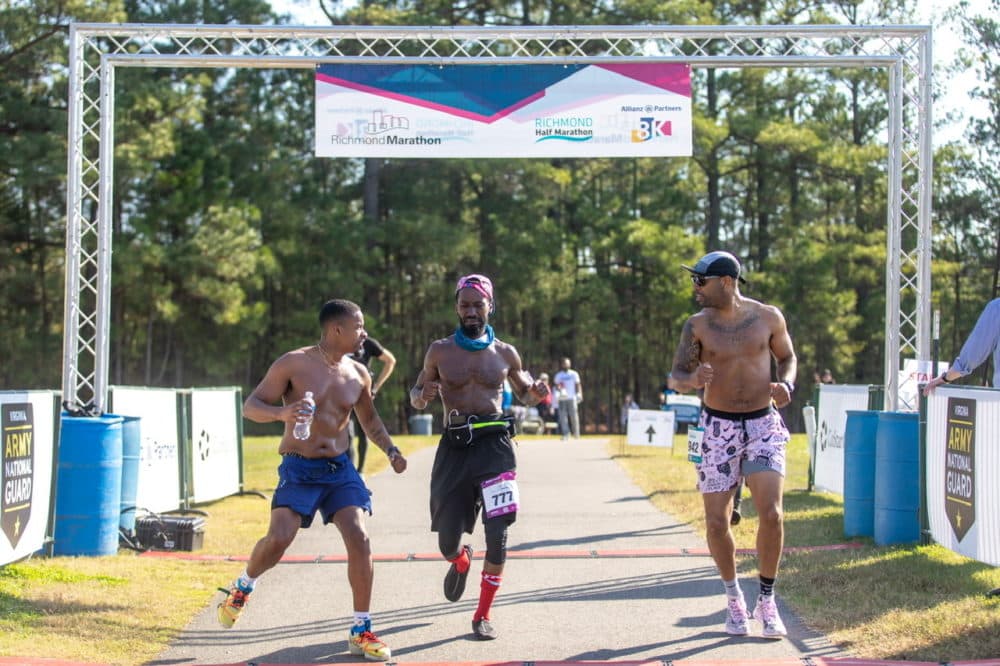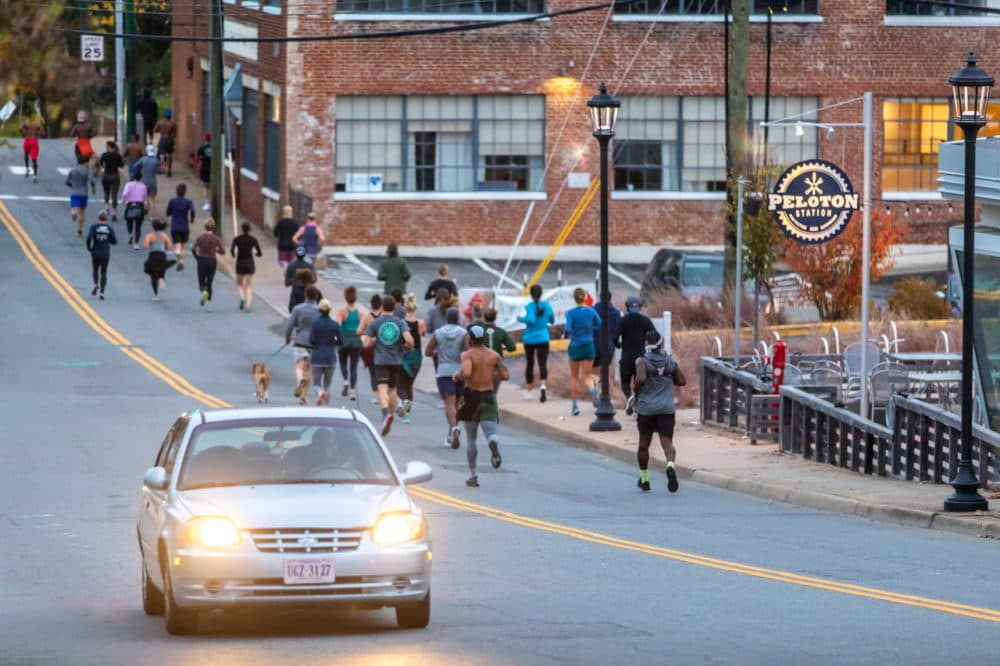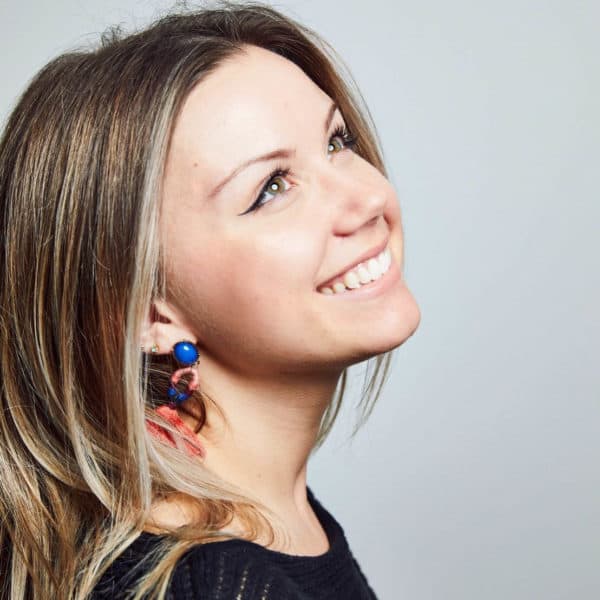Advertisement
A Black Runner's Desire To Be Seen Creates Community Pride, Diverse Run Crew
Resume
What started with a few runs around Charlottesville, Virginia, in 2011 became a movement. William Jones III relocated to the area and didn't notice any fellow Black runners.
But when Black residents saw him run by, they'd shout out encouragingly and cheer. To Jones, it felt more profound than just getting a little support — these people, he says, were seeing him.
The 5-mile loop that he originally mapped out, winding through the area's predominantly Black neighborhoods, is now the base of the city's most diverse running group. Jones named the group the Prolyfyck Run Crew after the lyrics in the Nipsey Hussle's "Victory Lap.”
Before a crew formed, Jones says he would run at night when people were outside on the streets. The barber by day, runner by night would dash through the neighborhoods with his Yorkshire terrier, a sight to see sprinting alongside him.
“I would run through with respect and with a little bit of courage, because I grew up in similar situations,” he says.
He was quickly received with open arms. The community showed “love and respect for my grind even if they weren’t ready to do it themselves,” he says.
For so long, Black Americans haven’t seen themselves represented in long-distance running, he says.
“I think privately we kind of touted ourselves on being really fast and doing sprints and we kind of looked at long-distance stuff like that was more of an African thing than a Black American thing,” he says. “Then with not seeing Black Americans do it, I think we just really started to believe it. We allowed our bodies to believe it.”

But for Jones, he says he discovered running reconnects him to his body and mind — and wanted other Black people to experience that.
Building strength and endurance during long-distance runs take practice and patience. Just ask Wes Bellamy, political science department chairman at Virginia State University and Prolyfyck co-founder, who was not a runner before joining Jones on his route.
Bellamy became upset on the first run with Jones. The novice runner complained about the various steep inclines and said Jones’ plan to encourage others to run up the hills was a “crazy” idea, Jones recalls.
“Now sometimes we'll have 100 people show up on a Friday morning,” Jones says.
Prolyfyck Run Crew is composed of many different people — Black, white, women, men, seniors and kids.
"We like to definitely acknowledge that our Black people show up first because that's always been our goal is for Black people to run," he says.
There’s a 72-year-old white woman who walks with them, he says. Everyone goes at their own pace.
Jones remembers how one young man on the team was nervous to run a section of the route he hadn’t tried yet — a steep hill. After some encouragement and almost quitting halfway, “he dug in and he ran up that hill faster than he was running before he got tired,” Jones says.
Jones got emotional seeing this young adult conquer the hill. “Man, I just really, like, cried,” he says.
When the crew consisted of just four or five core members, runners would wait for each other at different milestones, he says. Now the growing group gathers at the end of the route to cheer people on at their final test. Runners emerge from under a tunnel out near a public housing complex in the city and ascend on their last hill, he says.
Although the energetic group has been labeled as loud and seen a few criticisms surface on Reddit, Jones says Charlottesville has been welcoming to the Prolyfyck Run Crew. After recent police violence across the U.S. and the devastating impacts on the Charlottesville community following the neo-Nazi “Unite the Right” rally in 2017, he says Black youth in the city feel empowered to enact change within themselves and others.
“I think that's what is showing our Black community, a lot of our young men, a lot of our young ladies, to just make our situation better as Black people and ultimately make Charlottesville better because we are just dope,” he says.
He says the city and country could benefit from giving Black Americans — specifically Black women — “space to exist.”

Jones isn’t afraid to go out on a run as a Black man. He says he’s “like Ahmaud Arbery,” a 25-year-old Black man who would frequently jog around his neighborhood for exercise without any fear in him, Jones says.
In 2020, Arbery was chased down, shot and killed by a white father and son near Brunswick, Georgia. The killing was videotaped by a friend of the father and son.
“They hunted him, but he went out like a warrior,” Jones says.
Jones runs because he knows society doesn’t want him to — but as a Black man, he’s “survived a lot,” knows what is stacked against him and refuses to be afraid, he says. His wife and mother voice concerns about him running, he says, but he can’t waste time cowering in fear.
“To me, it's about walking around with our chests out. It's about showing that we belong here. … So no, we're not afraid,” he says through tears. “We're tired of being afraid.”
What started as one man lacing up his running shoes and hitting the streets has transformed into a mass of diverse runners who likely would have never otherwise thought about the sport.
They are seeing neighborhoods in their city they wouldn’t have otherwise traveled to, boldly embracing running obstacles and sharing in the joy of their supportive community.
“It’s powerful,” he says.
Karyn Miller-Medzon produced and edited this interview for broadcast with Robin Young and Jill Ryan. Serena McMahon adapted it for the web.
This segment aired on April 27, 2021.

